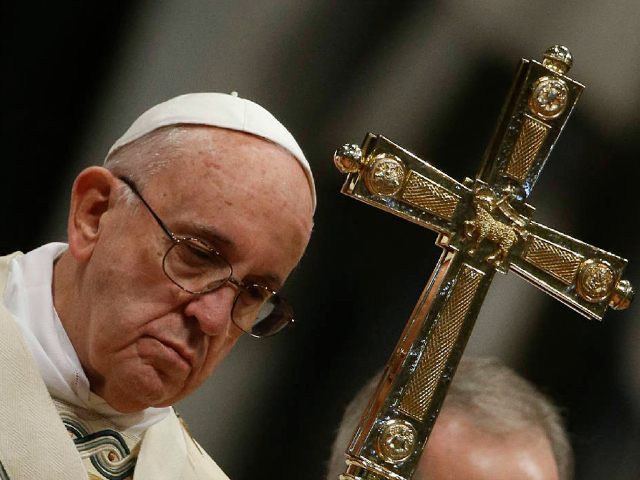Pope Francis threw himself into the middle of an already overheated Republican presidential race when he questioned frontrunner Donald Trump’s Christian faith.
Pope Franics made it appear as if his unprecedented remarks were motivated simply by a concern over Trump’s goal of building a wall along the U.S.-Mexican border, but I have little doubt the pope’s broadside has less to do with whether or not there should be a border wall and more about pandering to Mexican Catholics.
In fact, the pope is taking on Trump to boost his own popularity with Mexican Catholics and also to divert attention away from long simmering questions about the Mexican church’s relationship with narco donations.
Because the Catholic Church is struggling to stem defections among Mexican Catholics to Pentecostal Christian sects, the pope came prepared to demonstrate he was a friend of working class Mexicans. The American political debate over illegal immigration was tailor made for pontifical sound bites.
By diverting attention to a brawl with Trump, the pope can continue avoiding a peculiar problem in Mexico: huge cash donations to the Mexican church from cartel bosses. The dirty donations are so common they are called narco limosnas (narco alms). No money laundering laws are violated so long as the Mexican clerics do not kick back any of the cash to the traffickers, but it is a problem the U.S. government has pleaded with the Church to address. Attacking Trump’s faith is about as good a diversion as possible to avoid having to tackle narco alms.
Pope Francis likes to wear a reformer’s mantle. In going after Trump, he said, “A person who thinks only about building walls, wherever they may be, and not of building bridges…. this is not in the gospel.” When I heard that, I could only think of the fact that Pope Francis has steadfastly refused all public calls to open the Vatican’s Holocaust files and bank records from World War II. This issue is particularly timely because of evidence that the Vatican may have profited during World War II through secret investments in German and Italian insurers, and that those companies reaped outsized profits by escheating the life insurance policies of Jews sent to the death camps.
When he was the cardinal of Buenos Aires, he said those files should be opened. Now, as pope, he has avoided the issue.
The pope’s criticism of Donald Trump could apply to the Vatican’s own intransigence over its wartime archives. “Building walls” (or in other words keeping the files under lock and key inside the Secret Archives), instead “of building bridges” (opening the archives to historians), is “not the gospel.”
No one, of course, questions Pope Francis’s faith as a Christian simply because he is not tackling narco-alms or opening up the secret Holocaust files. The same should apply to political candidates. The pope is free to disagree with any politician, but to interfere in American politics is likely a misstep. And to do so with a moral judgment about faith violates a secular and religious red line that should be sacrosanct.

COMMENTS
Please let us know if you're having issues with commenting.